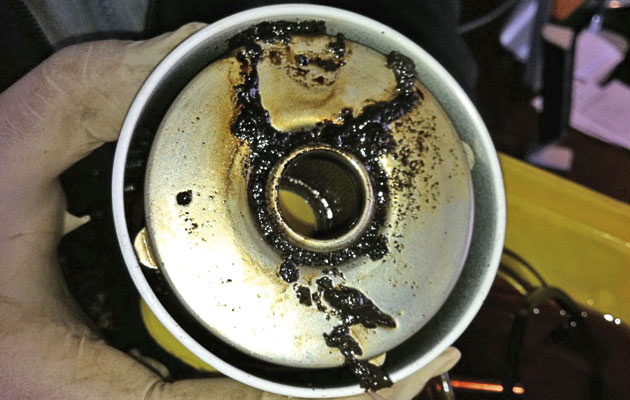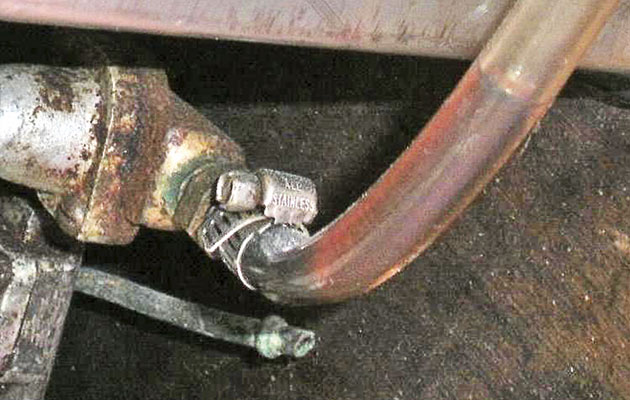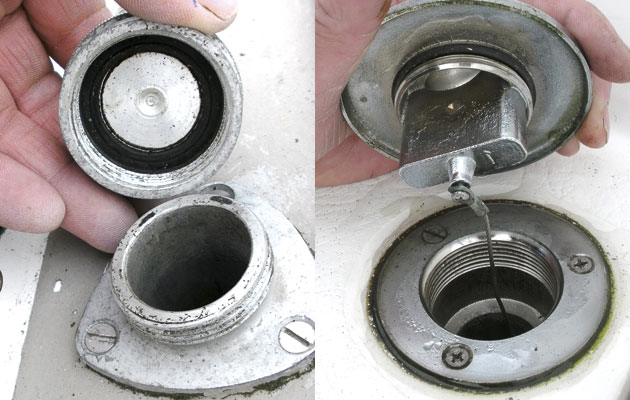|
Diesel bug can clog filters, wreck engines, corrode fuel tanks, and leave you powerless at sea. Here are the Tips to keep your diesel clean.
Over forty years later the make-up of diesel has changed dramatically, making contamination even more likely, but still many yachtsman are falling foul of Rule 1. The big difference now is diesel bug, and the sheer cost of what it can do compared to just dirty old fuel with a bit of water in it.
What is diesel bug?
It’s caused by microbial bacteria that enter the fuel tank and feed on the water, nutrients and hydrocarbons that our biofuels now contain. Temperature also plays a role in how quickly they develop. They like it between 5-70°C but thrive around 30°C. Over 100 variants of these organisms have been identified, some airborne.
It can be expensive
Depending on the engineer’s qualifications. Cleaning tanks, replacing affected fuel lines and filters can run to thousens of rupees. If the injectors, or worse still the fuel pump, are affected, that can lead to bills of More then 3 - 4 Lakhs.

The bio content in some fuels will increase in the next few years. The current fuel standard, BSEN590, specifies a maximum of 7% bio content but the oil giants are waiting for the Government’s say-so to introduce fuel with 12% bio content. It will come with the caveat that, once it reaches your tank, it may last only six months. Environmental concerns, and the fact that it’s cheaper to produce biofuels, mean that percentage will keep rising. Indeed, many firms process and sell biofuels with percentages from 20-100%.
What are the signs?
The most obvious sign is that your engine stops. Recently, YM reader Jeff Wrinch reported that diesel bug blocked a banjo connector in his filter’s fuel line, stopping the flow of fuel. As with fuel tanks, bugs can and will damage some metals.

A sluggish response, excessive smoke from exhaust, poor starting or the odd beat missed can be an early indication of diesel bug. I know of one incident where diesel bug prevented the injectors working properly, providing unbalanced power that damaged the engine’s crankshaft.
What can I do?
For yachts that carry less than 10-15 gallons of fuel, sometimes it’s cheaper to dispose of fuel at the end of the season, clean tanks and start afresh in spring. For larger craft that’s not economical, so samples can be sent for lab assessment (there are some DIY test kits) and the fuel can be treated.
Store fuel properly. Biofuel has a shelf life, so where possible try and keep its temperature around 5-10°C and stable if possible. If in doubt at the start of the season, sometimes the only option is to dump it properly and start afresh.
Check your deck filler
When I survey boats, I often find the deck filler design traps a little water in the cap, which drops down the fuel filler pipe. Other caps have missing or perished O-rings, which will let water in. On some older craft, the diesel filler is in the cockpit sole and these can leak, too. It’s often prudent to relocate it – but not to a sidedeck: it shouldn’t be submerged and spilled fuel is a slip hazard.

Should I keep the tank full?
Yes, but it needs to stay full. Many owners top up tanks before leaving the craft, but set their diesel heaters to run occasionally while they’re away. If the heater draws from the main tank, the fuel used creates an air space in the tank, plus the hot and cold periods can assist the bug’s growth.
Putting some heat through a boat in winter is good, but don’t overdo it. Background heat helps keep your craft dry and aired but I’ve been on some boats where going below is like arriving in the Med: far too warm.
Inspect your tank
Make sure there’s no copper, brass, bronze, lead, tin, or zinc in contact with the fuel, as these react and hasten degradation. I prefer stainless steel but some of the new high-grade linear polythene tanks claim to be corrosion-free and less prone to condensation than other PVC or metal tanks.
Your fuel tank should allow you to drain off a small amount from its lowest point, to let you remove any water and check the fuel’s condition. Many boats don’t allow this, so for fuel sampling I have a tube long enough to reach the bottom of the tank and a small hand vacuum pump to pull fuel into a clean bottle. You could also check for a ‘bug mat’ of growth in the tank, using an endoscope through the inspection hatch.
If the tank is susceptible to engine room or cabin temperatures, try insulating it with fire-proofing to keep the fuel temperature range as low as possible. Lastly, when fuel is drawn off, air is sucked in, but where from? Check your breather vent has a proper swan neck to prevent water getting in. Remember the air drawn in to your fuel tank holds at least 15-20 per cent moisture. You could fit an in-line desiccant breather for as little
I’ve got the bug. What do I do?
Most companies that treat diesel bug use similar biocides or enzymes – some eco-friendly, a delicious irony – but none can reverse damage. Depending on your type of fuel, some will stop the bug’s growth but not kill it. Most firms recommend a biocide or, in severe cases, a ‘shock’ treatment involving a big dose of chemicals that take time to work, then removing the dead bug from the tank and changing the filters. For larger amounts of fuel, ‘diesel polishing’ removes water and impurities including the bug, but if the root cause has not been properly addressed, it’s likely to return.
Source - |








